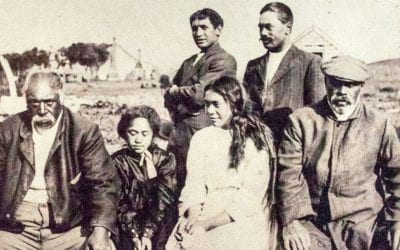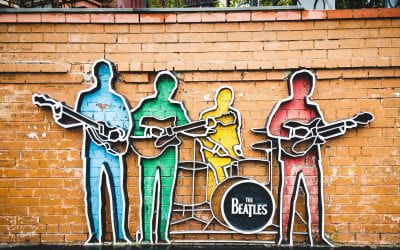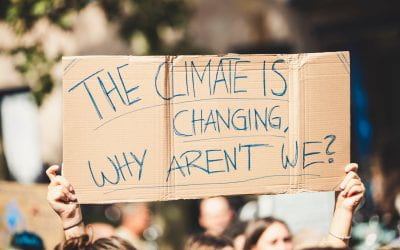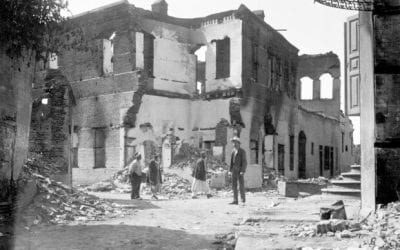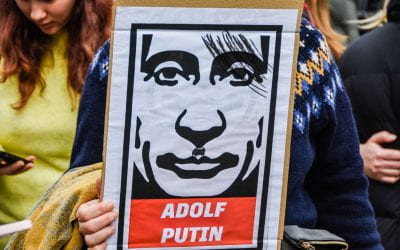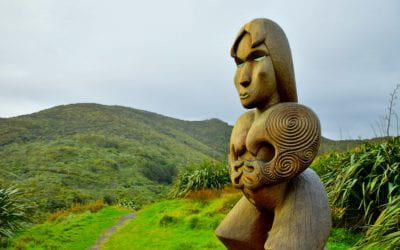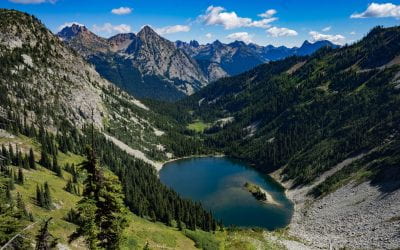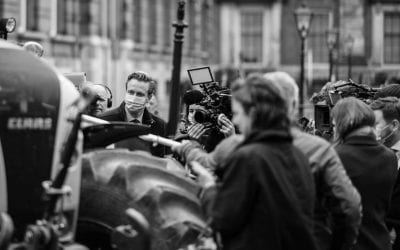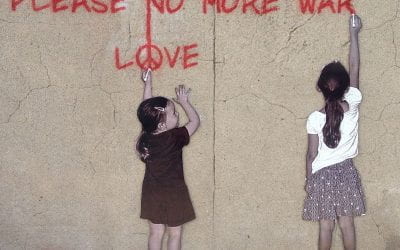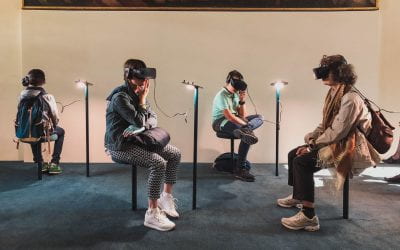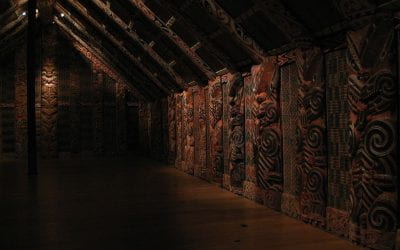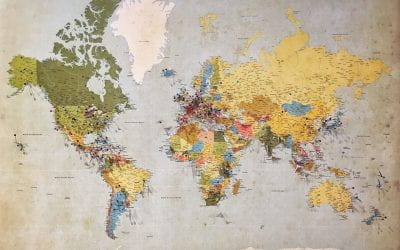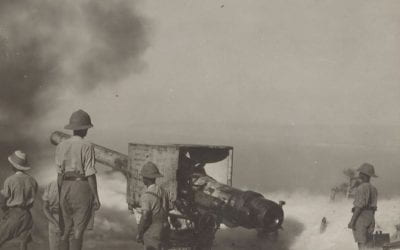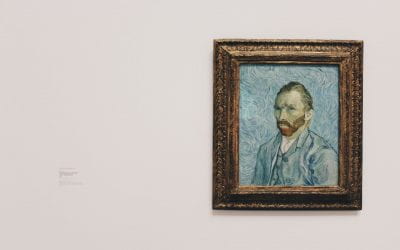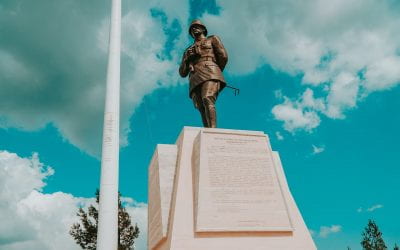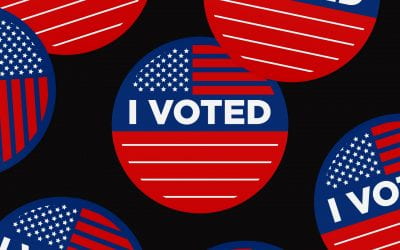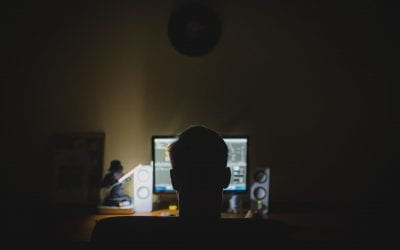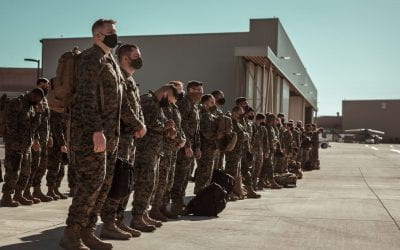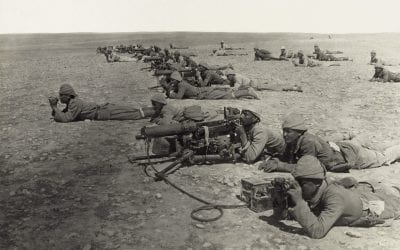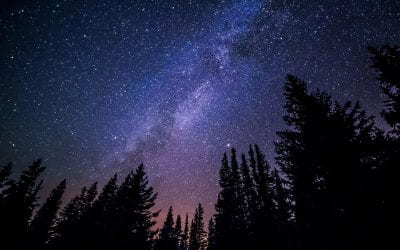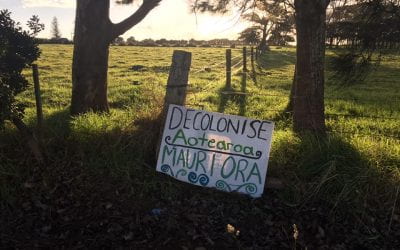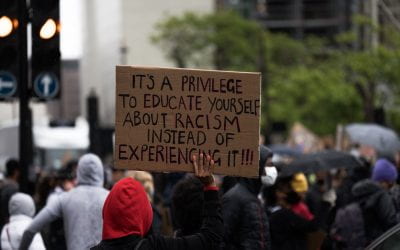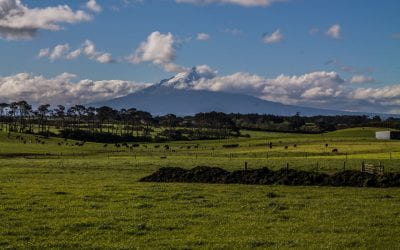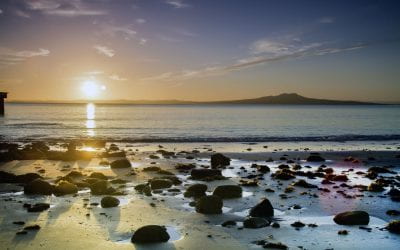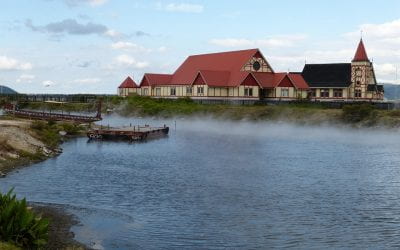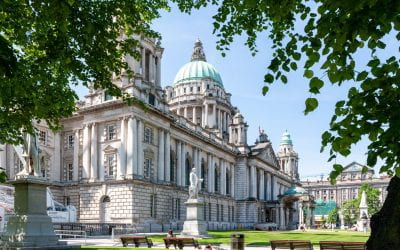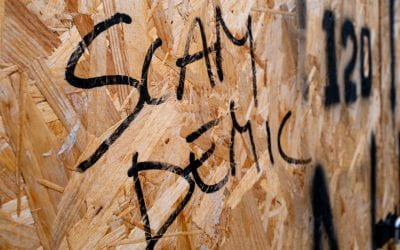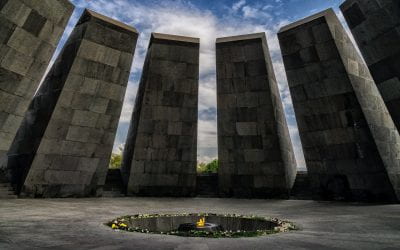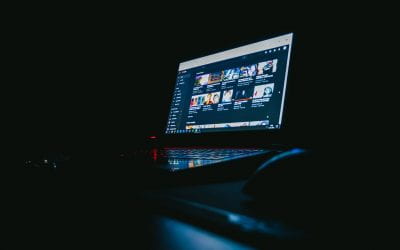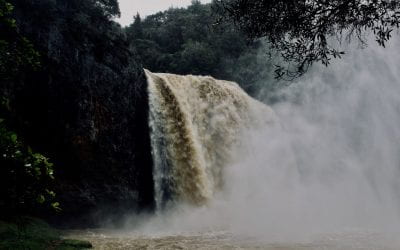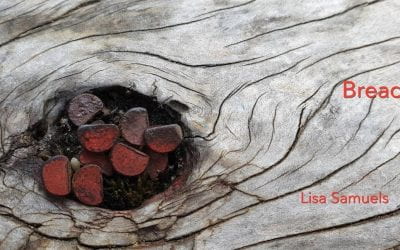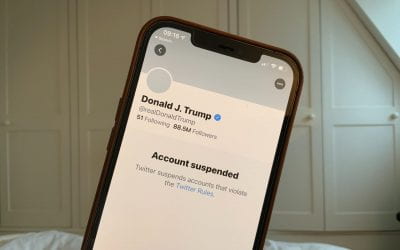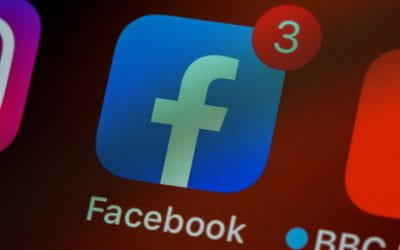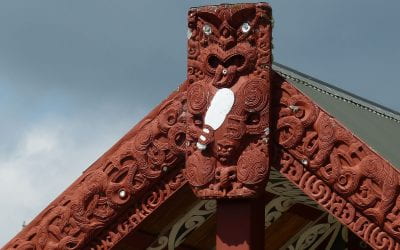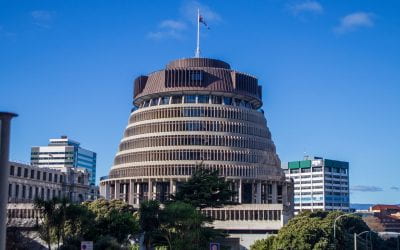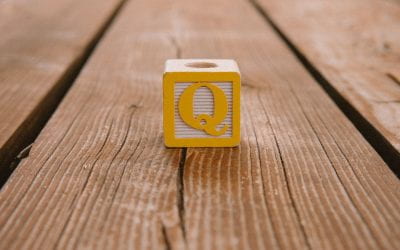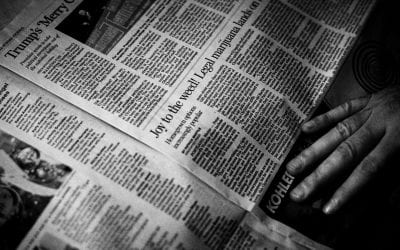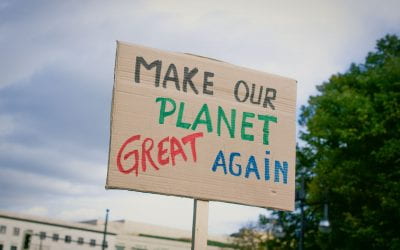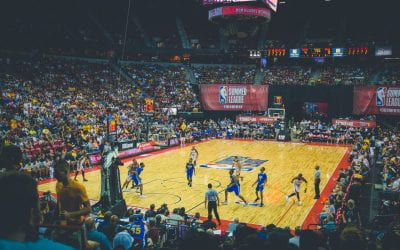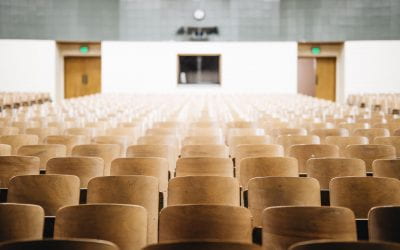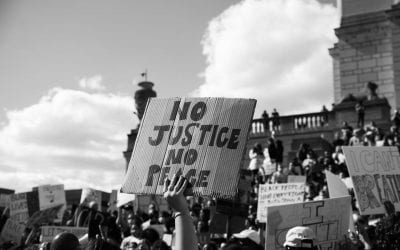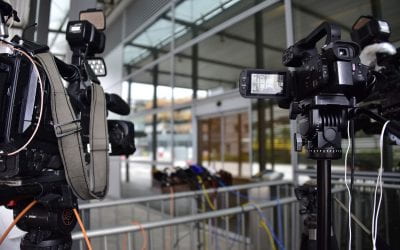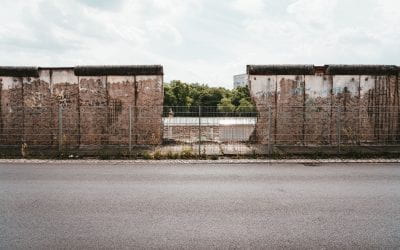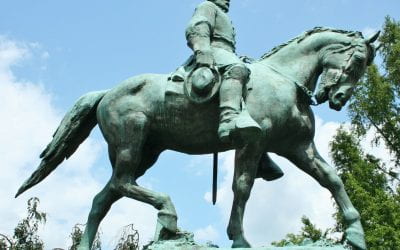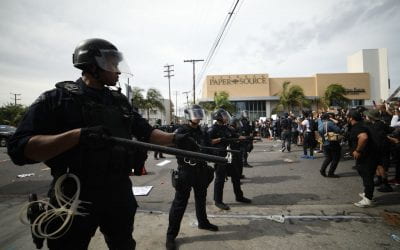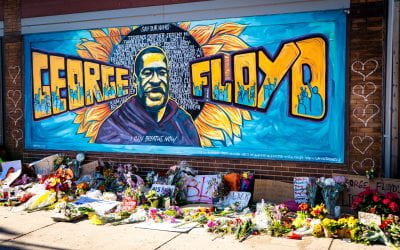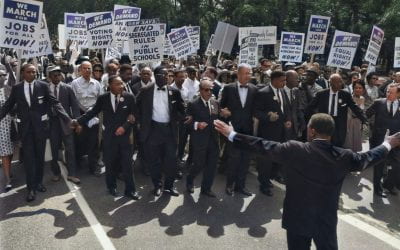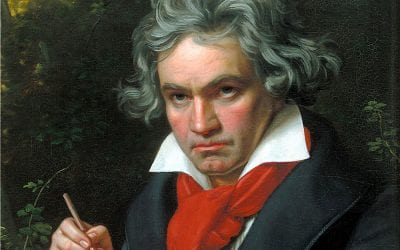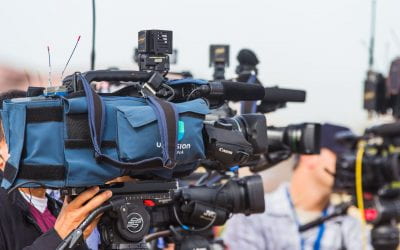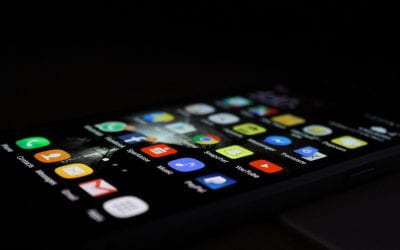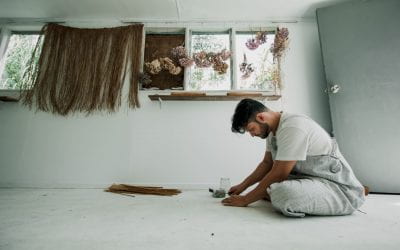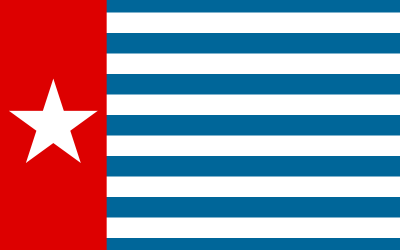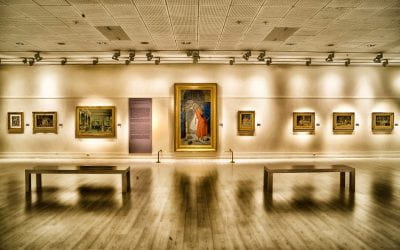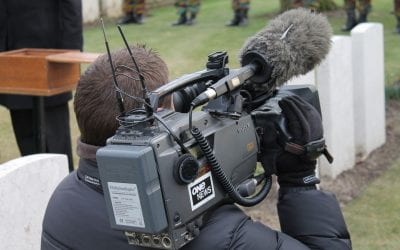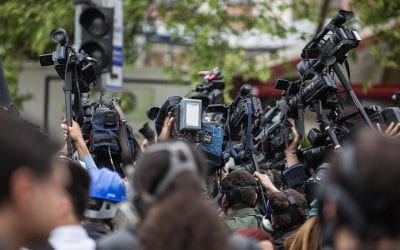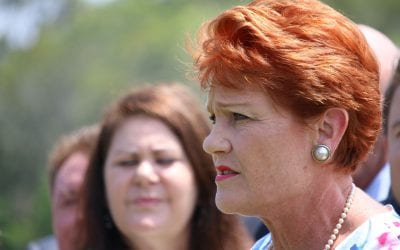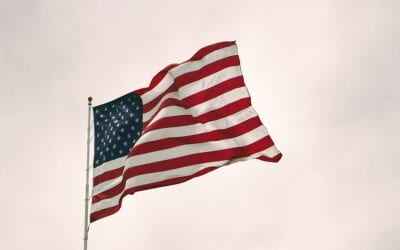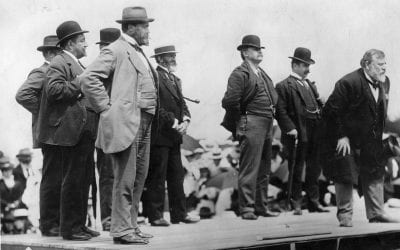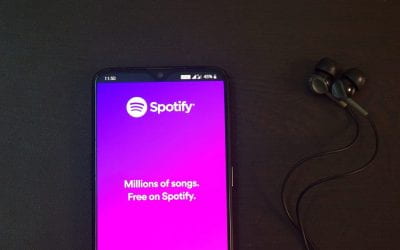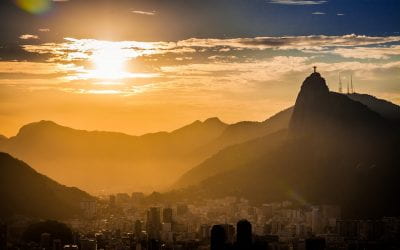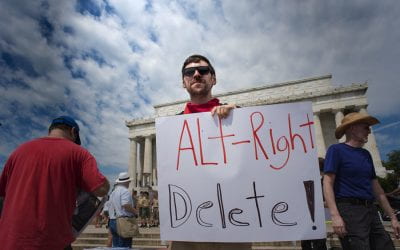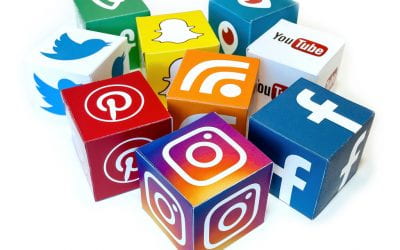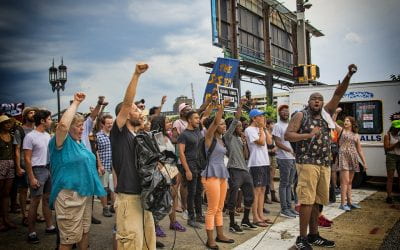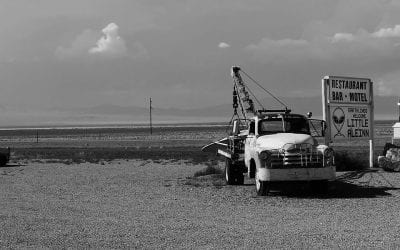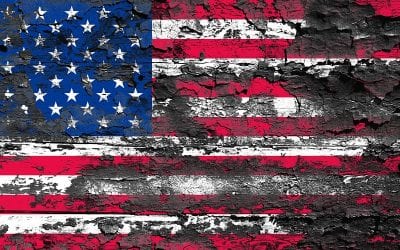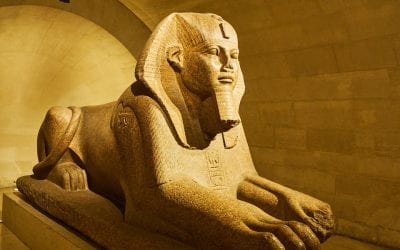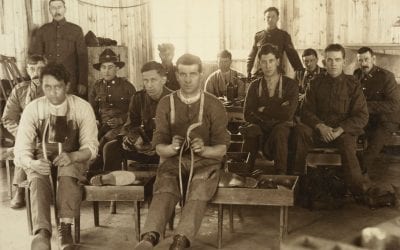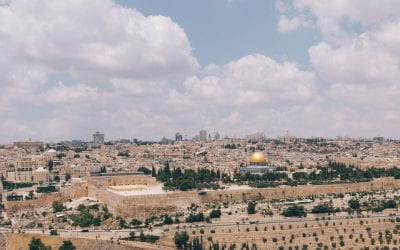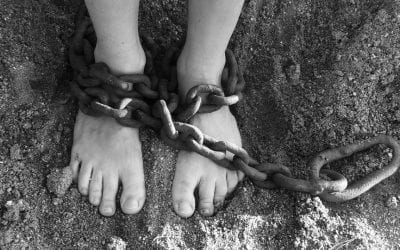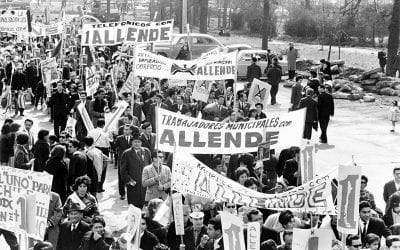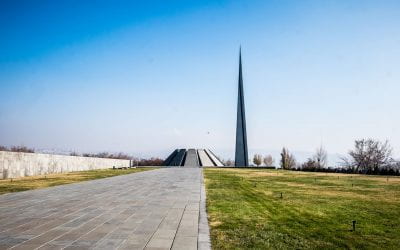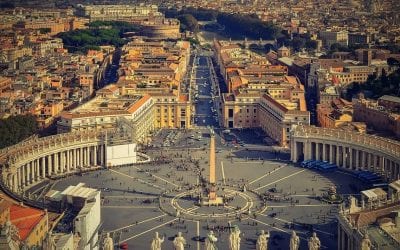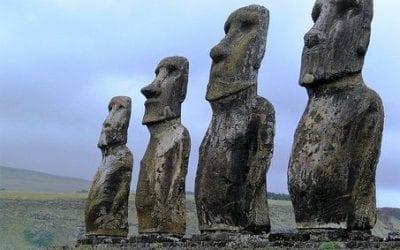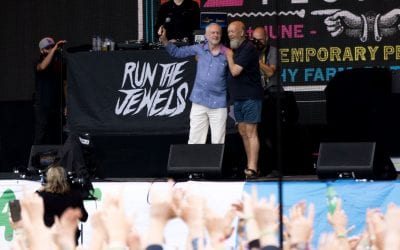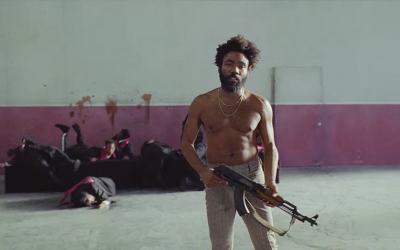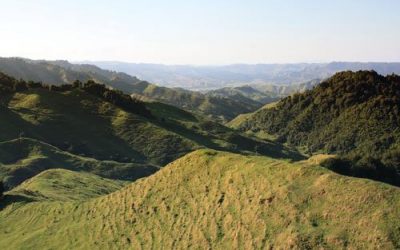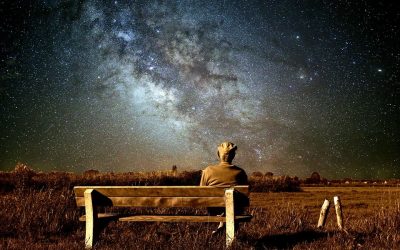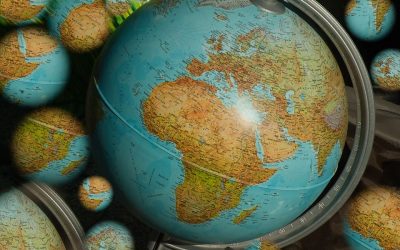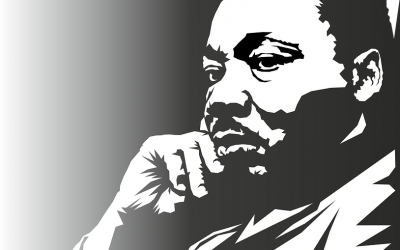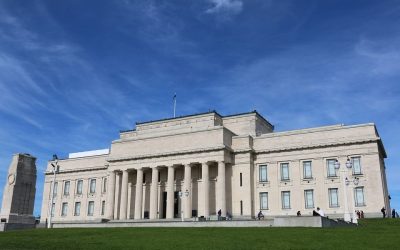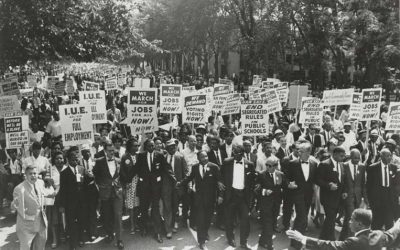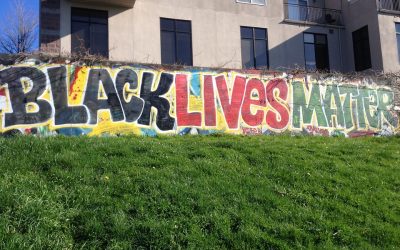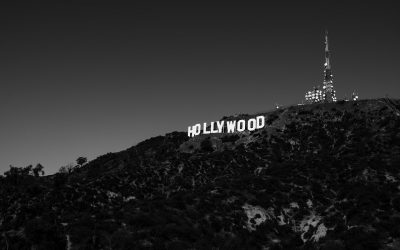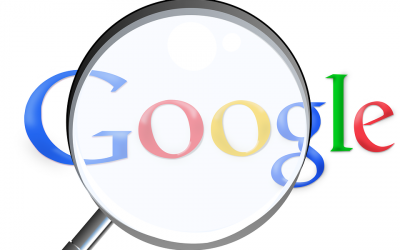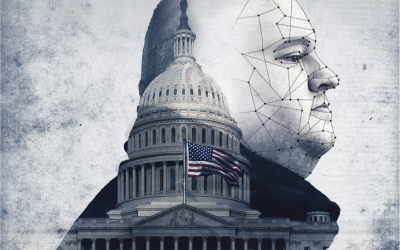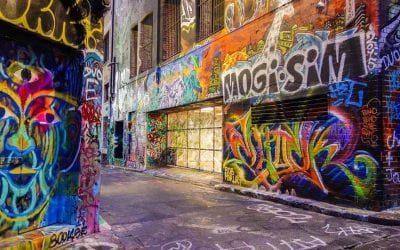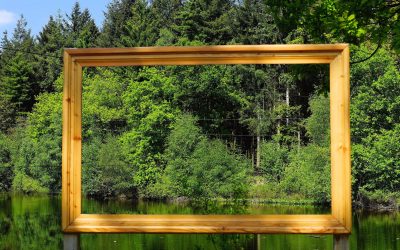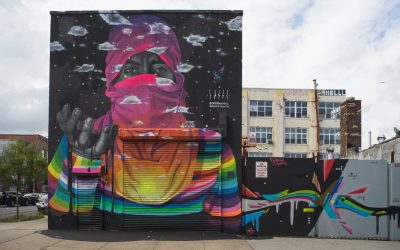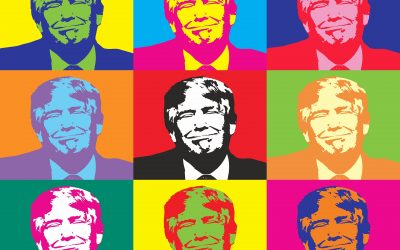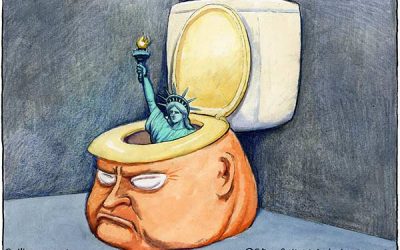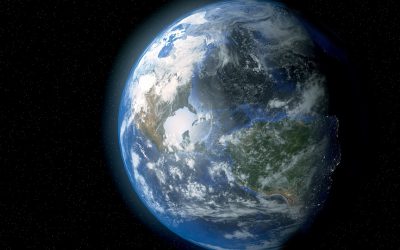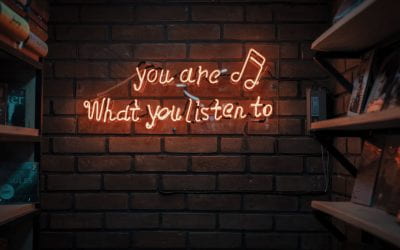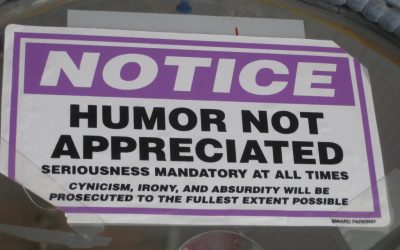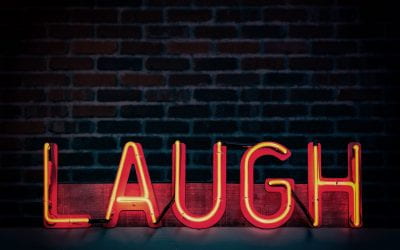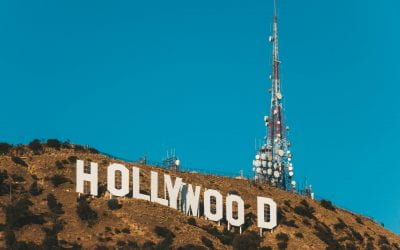Arts & Culture
Sustain: What role can documentary play in combating climate change?
On the 9th of November, Nga Ara Whetu held its inaugural eco-film festival. Afterwards, co-director Dr Maria Armoudian hosted a panel discussion with University of Auckland Professor Dr Annie Goldson, senior lecturer Dr Mark Harvey, and the executive producer of Milked Suzie Amis Cameron.
Reviving a Lost Heritage: How Can an Indigenous Community Resurrect Its Dormant Language?
Discover the initiative to revive Ta rē Moriori, an indigenous language in New Zealand, led by linguist John Middleton and Hokotehi Moriori Trust.
Is “Now and Then” really a Beatles song?
Discover the AI-driven revival of the Beatles’ “Now and Then,” exploring its technology, historical context, and its impact on the legendary band’s legacy.
Will AI Become the Arbiter of Music Copyright Infringement?
Musicologist Dr. Patrick Savage examines the effectiveness of algorithms in detecting music plagiarism and their role in copyright infringement cases.
Does AI work by exploiting our unwaged labour?
Fabio Morreale exposes the exploitation of AI training through our interactions, raising ethical concerns and advocating for change.
Can NZ step up and address Earth system decline?
The Government of Aotearoa New Zealand has a unique opportunity to demonstrate leadership and action by changing its laws to conform with the laws of nature, writes Klaus Bosselmann. Can NZ step up and help lead?
The fall into the abyss
In April 1909, two waves of massacres shook the province of Adana, located in the southern Anatolia region of modern-day Turkey, killing more than 20,000 Armenians and 2,000 Muslims.
Who are you calling a Nazi?
While it is all too easy and comfortable to indulge in our Nazi fascination to demonise our enemies, maybe we should still the media chaos just for a moment and reflect. Who are you calling a Nazi? And why?
What cultural values belong in science?
The University of Auckland’s Julie Rowland examines the notion that education should be secular and devoid of any form of spirituality.
How did the U.S. come to collectively own over 600 million acres of land? How has that changed over time? 🔊
In this two-part special episode of the Scholars’ Circle, Doug Becker explores the history of public land in the United States.
Why did a record number of journalists get jailed in 2021?
Journalists’ Nobel Peace Prize casts a shadow on failures of our democracy.
How can we use art to understand war?
Two former official war artists are using art to research how we respond to and cope with, conflict.
How many decades old is “revenge porn” and how have laws historically addressed it?
By Jessica Lake In the 19th century, a man was busted for pasting photos of women’s heads on naked bodies … sound familiar? A new app can turn anyone into a porn star against their will. All you need is a photo and deep fake artificial intelligence technology will...
What is the metaverse?
What is the metaverse? Two media and information experts explain.
Why do some people believe the Earth is flat?
By Anders Furze Although scientific evidence says the Earth is a sphere orbiting the Sun, there are some people around who still think our planet is flat... and social media plays a role. If you type ‘flat Earth’ into Google, you’d be joining a group of people that...
Choosing our destiny: why do Pentecostal churches oppose COVID response efforts?
Fraser Macdonald examines why Destiny Church and other New Zealand Pentecostalists oppose lockdowns and vaccination.
Why are the New Zealand Wars still important? 🔊
In this episode of the Big Q podcast, Sam Smith speaks with renowned New Zealand historian Vincent O’Malley about the New Zealand wars, their importance, and their place in contemporary New Zealand.
What is the problem of colonising language? 🔊
David Lloyd speaks with the world-renowned Kenyan novelist, playwright and poet, critic and widely influential postcolonial theorist, Ngũgĩ wa Thiong’o.
What happens when you invert the history of the First World War?
It is only by unmasking the myriad local and global transformations occasioned between 1914 and 1918 that we can truly understand this conflict as a total global war and a total global tragedy.
Can viewing art reduce stress?
By Paul Panckhurst There's evidence that looking at paintings can reduce stress and anxiety. A researcher wants to know if this phenomenon can help surgery patients heal. Pablo Picasso once said, "Art washes away from the soul the dust of everyday life.” The artist...
When will New Zealand stop honouring this genocidal dictator?
Absent-mindedly paying tribute to murderous Turkish dictator Mustafa Kemal Atatürk is a stain on this country’s integrity. It’s time we did something about it, writes Maria Armoudian.
How did America’s youth get the right to vote?
In an extract from her new book “Let Us Vote: Youth Voting Rights and the 26th Amendment,” Jennifer Frost outlines the path towards youth voting rights in the United States.
Why did QAnon become so widespread? 🔊
Conspiracy theories have marked American politics throughout the nation’s history. The most recent popular conspiracy centres around a shadowy figure who posts online under the pseudonym Q.
The atom splitter: What is Ernest Rutherford’s legacy?
It’s the 150th anniversary of the birth of New Zealand’s most celebrated scientist, Ernest Rutherford. Richard Easther acknowledges the man who brought us the insight that our world is made of atoms.
ANZUS at 70: What next for the alliance?
Together for decades, the US, Australia and New Zealand now face different challenges from China.
How global was the First World War? ▶
In this public lecture, Professor Maartje Abbenhuis argues for the necessity of integrating the experiences and perspectives of neutral, non-belligerent and subject communities in the history of the First World War, which is still so often cast as ‘Europe’s War’.
Mātauranga Māori: What is science?
Let’s choose our words more carefully when discussing mātauranga Māori and science.
How can we rethink ‘race’ in Aotearoa?
A new column from Dame Anne Salmond challenges the legalistic, one side up against the other approach to race relations and the Treaty of Waitangi of the past 40 years.
What is critical race theory? 🔊
In the last six months, several U.S. states have barred the teaching of critical race theory in schools. Critics suggest this campaign is to eliminate discussions of race in classrooms, while others suggest that critical race theory is poorly understood.
Is it time Pākehā New Zealanders faced their personal connections to the past?
“It is a long since time we Pākehā confronted the unsettled history of the place in which the “team of five million” lives. Time we were honest with ourselves. Time we ended the forgetting.”
What is the future of Māori-Pakeha relations?
Instead of seeing Māori ways as an either/or with existing thinking about the world and its governance, Dame Anne Salmond argues it’s time to bring them together for new institutional forms of order for Aotearoa-New Zealand.
How bad was Māori segregation?
Robert Bartholomew says it’s time to educate about a dark chapter of Māori racial segregation. Because while history may not repeat, it speaks to the present.
Free speech: Is it really under threat?
We can expect a lot of sound and fury as we start to debate the hate speech provisions that will be aired soon. But hopefully, we can also have an informed debate about the nature of hate, including what occurs online, and the impacts of this on communities, especially those which have been targeted by hate.
Why the current turmoil in Northern Ireland?
This recent period of instability is attributable to a range of factors, both external and internal to Northern Ireland.
Was Phar Lap killed by gangsters? New research shows which conspiracies people believe in and why
Research suggests avoiding ridicule, showing empathy, affirming critical thinking and appealing to trusted message sources can help when talking to someone who believes in conspiracy theories.
Armenia: Why do nations deny genocide? 🔊
Last week, to commemorate the start of the Ottoman genocide against Armenians, US President Joe Biden officially acknowledged the genocide. He was the first US President to do so.
How can we create progressive popular platforms?
How can we create a progressive ‘popular force’ in an era of digital media platforms dominated by the innovations of right-wing populism?
What does acknowledgement and commemoration mean for genocide awareness and justice? 🔊
After a genocide event, there are voices of remembrance by generations of past survivors. The victims live with the trauma of the experience, which is passed on to the following generations of survivors.
How can a Matauranga Māori lens help keep our rivers healthy?
Researchers have articulated a way to look at and look after our fresh waterways founded on Matauranga Māori.
How does art happen in the pressures of the COVID pandemic?
“Pressure tends to bring us to attention, so it’s no surprise that the COVID pandemic motivates art.”
What did Trump’s Tweets really mean?
“I analyzed all of Trump’s tweets to find out what he was really saying.”
News ban: Can we regard Facebook as a public utility?
“We have been shocked by Facebook’s Australian news ban because we have been labouring under a misapprehension: We thought it was a public utility.”
Should social media companies be owned by the public? 🔊
Social media, as it exists currently, is an oligopoly, with a handful of private companies controlling the structure and use of the platforms which mediate our communication not only with one another but also with the public sphere.
Why is the Treaty of Waitangi and its history important? 🔊
In 1987, Dame Claudia Orange published her best-selling book The Treaty of Waitangi. In what was a comprehensive look at the Treaty and its history, Orange’s book remains one of the most significant and popular New Zealand history books. It has also now been re-issued with three new chapters taking the history of the Treaty up to the present day.
How significant was the Treaty of Waitangi Act?
In a new edition of her popular book, The Treaty of Waitangi / Te Tiriti o Waitangi: An Illustrated History, distinguished historian Dame Claudia Orange brings the narrative of the Treaty up-to-date. In this extract, she explores the critical phase in the Treaty’s history that began with the passing of a significant piece of legislation.
What’s wrong with the Anzac mythology?
“In salvaging these stories of bloodshed and terror, heroism and humanity, we must pick apart the grand mythology which has smothered and replaced them.”
Why do people believe or endorse conspiracy theories?
“By situating the cause of these events in the hands of a few nefarious actors, conspiracy theorists are able to take the unpredictability out of life and regain a sense of control.”
How has COVID reshaped the New Zealand media landscape?
Closures, cuts, revival and rebirth: how COVID-19 reshaped the NZ media landscape in 2020.
What can news organisations do to rebuild public trust? 🔊
This year’s annual Bruce Jesson lecture hosted by the faculty of Arts at the University of Auckland was given by CEO of Stuff, Sinead Boucher.
How did Trump win the online disinformation war?
Social media platforms have allowed US conservatives to delegitimise the election and sow mistrust of democracy.
Climate change: Why do humans instinctively reject evidence contrary to their beliefs?
Why do humans instinctively reject evidence contrary to their beliefs? Do we understand why and how people change their mind about climate change? Is there anything we can do to engage people?
How have sports shaped the Black Lives Matter movement?
Despite criticism, sports players have used their role and the unique platform of sports to highlight and drive change, from the Springbok tour of New Zealand to the kneeling that Colin Kaepernick did in 2016.
Should we be worried about COVID-19 conspiracy theories?
Polls indicate that the public broadly supports the coalition government’s COVID-19 pandemic response, and public condemnation of conspiracy theories about COVID-19 is easy to find.
New Zealand universities: What’s the reality in our rankings?
“The Labour Party promises to make all tertiary education free by 2024; and this is an admirable goal; but unless it is accompanied by a serious re-thinking of the nature, purpose, and funding base of our universities it will only lead to further decline.”
What does the future hold for liberal arts education? 🔊
Universities are increasingly wanting to appeal to students who look to their study as a training period for future employment. However, this has put traditional liberal arts subjects like philosophy and sociology at risk.
Is the United States haunted by its racist past? 🔊
In recent weeks, the news in the United States has been filled with stories of statues and public spaces being altered or removed. These stories are usually connected with America’s racist past, with a particular eye towards the issue of slavery.
What does the future hold for the New Zealand media landscape in a post-COVID world?
New Zealand media faces a conundrum as it tries to create a trustworthy, innovative and sustainable model in the Covid-19 world, while absorbing thousands of job losses.
The snake, the hedgehog and the Berlin Wall: How significant is the fall of the wall thirty years on?
Stephen Resch reflects on the fall of the wall thirty years on.
What have been the long-term consequences of Vietnam’s invasion of Cambodia in 1979? 🔊
In 1979, Vietnam invaded Cambodia and overthrew the Khmer Rouge government. This government had committed genocide since its seizure of power in 1975. Vietnam’s motivations have been asserted in a wide range of explanations, from the advancement of communism to humanitarian interests to strategic interests.
Should racially offensive public memorials be removed? 🔊
In the days after the killing of George Floyd, protesters have made several demands to counter police violence and racism in the United States. Some of the demands directly relate to the history of race and violence in America and, in particular, an emphasis on the memory of the American Civil War.
Riot or resistance? How media frames unrest in America will shape public’s view of protest
The general public’s opinions about protests and the social movements behind them are formed in large part by what they read or see in the media. This gives journalists a lot of power when it comes to driving the narrative of a demonstration.
How does history help us understand the murder of George Floyd?
Systemic white violence against black Americans is alive and well, and it’s white violence that sustains white supremacy.
What is the historical context behind the George Floyd protests? 🔊
Following the death of George Floyd in police custody, calls are growing for people to do the work to truly understand the history of how the United States got to this point.
Will COVID quieten Beethoven’s big birthday?
The 250th anniversary of Beethoven’s birth would surely be loud, public, monumental, teleological, triumphant, heroic—like the music of the man himself. Right? Wrong, on both counts.
How much do we trust our news media?
A survey released last week tells us 53 percent of New Zealanders trust overall news sources most of the time.
Why is it so hard to stop COVID-19 misinformation spreading on social media?
Even before the coronavirus arrived to turn life upside down and trigger a global infodemic, social media platforms were under growing pressure to curb the spread of misinformation.
What is decolonisation?
Many writers only loosely define what they mean by it, while others use it as a general black box for addressing the negative impacts of colonisation upon Indigenous peoples.
First in Family: Our University Voyages
Awarding-winning filmmaker Professor Annie Goldson didn’t have to travel too far from her University of Auckland desk for her latest documentary production, with Dr ‘Ema Wolfgramm-Foliaki.
How can we recognise misinformation and disinformation? 🔊
The great promises of the internet to offer inter-connectedness and the spread of great ideas has brought great challenges in discerning fact from fiction.
What’s at stake in West Papua?
Dr. Mark Busse and Sophie Faber examine West Papua’s history to see what’s at stake politically and economically in the current unrest.
Why do people steal art? 🔊
The recent heist at the Green Vault within the Dresden Castle in Germany has been speculated to be one of the largest art heists in history.
What would a merger between TVNZ and RNZ mean for New Zealand’s media landscape? 🔊
The New Zealand Government is considering significant changes to the configuration of public service media in New Zealand.
Turning off the lights: Is the government to blame if Mediaworks’ TV3 shuts down?
Is the government to blame if Mediaworks’ TV3 shuts down? Peter Thompson looks into the crisis at the struggling network.
What impact will Twitter’s political ad ban have on democracy? 🔊
Last week, Twitter announced it would ban all political advertising from the 22nd of November. Founder Jack Dorsey says that political reach should be earned, not bought.
Q+A: Scars of the past: What is historical memory and how does it change?
How important is historical memory in politics? What can we learn about how our past memories are manipulated to change current and future politics? What can we learn from memory entrepreneurs in places like the former Yugoslavia?
Why do we need journalism?
Journalism is facing a profound financial crisis. Around the world, news outlets are closing, and journalists are losing their jobs. Should we be worried?
History Masterclass: Does Australia have a history of populism? 🔊
In this episode of history masterclass, Malcolm Campbell looks at the history of populism in Australia and poses the question of whether Australia has a history of populism.
History Masterclass: How can we understand American populism? 🔊
In this episode of history masterclass, Paul Taillon explores American populism through history and how we can understand it in terms of today’s politics.
History Masterclass: Who was New Zealand’s first populist government? 🔊
In this episode of history masterclass, Linda Bryder talks about New Zealand’s first populist government, the Liberal Government, which served from 1891 to 1912.
Spotify killed the CD star: How has streaming impacted the music industry?
Sam Smith explores how the growth in music streaming has impacted the music industry.
Remapping the order of knowing: The idea of ‘Latin America’ revisited ▶
Is ‘Latin America’ part of ‘the West’? Why ask this question, and what do these terms mean for understanding the world today? In this lecture, Professor Walter Mignolo will ask what role the Americas played in forming the colonial matrix of power introduced by Spain and Portugal in the 16th century.
The gospel of kindness: Animal welfare and the making of modern America ▶
Janet Davis talks about the historical and political significance of animal welfare advocacy and the profound challenges of global animal protection.
Memes, manifestos, murder: Fascist radicalisation online, and how we can stop it ▶
In a talk given at the University of Auckland, Emmi Bevensee talks about her doctoral research into fascist radicalisation online.
Taking issue: Is social media good or bad for democracy?
We asked three academics to address the question of whether social media is democratising or eroding democracy.
Black Lives Matter, otherwise all lives do not matter ▶
In a lecture given at the University of Auckland, Professor Onwubiko Agozino attempts to demonstrate the theory that injustice anywhere is a threat to justice everywhere.
Q+A: Believing the ‘unbelievable’: What are conspiracy theories? How do they flourish?
We are living in a world where conspiracy theories are allowed to flourish. With every mass shooting, terrorist attack, and new political policy announcement, it seems like a new conspiracy theory will be dreamt up somewhere both on and offline to explain the reasoning behind an event.
The meme politics of white supremacy: How does fascist radicalisation happen on the internet?
The devastating anti-Muslim attacks carried out in Christchurch in March this year were part of a trend of disaffected white men radicalised into fascist politics through social media meme culture, according to Emmi Bevensee.
Q+A: Why is the United States so polarised?
What are the fault lines that have fractured politics in America? Julian Zelizer has analysed the historical roots of the present-day political turmoil, divisions, and partisanship in the US for his new book Fault Lines: A History of the United States Since 1974.
What is the ‘Alt-Right’?
After the horrendous attacks in Christchurch, many people understandably have questions about the motives and ideology of the alleged attacker. Damon Berry analyses the role the alt-right might have played in the attacks.
Q+A: How are political ideologies labelled?
How are political ideologies labelled, and how are political spectrums formed?
Where is the music industry’s #MeToo movement?
Sam Smith explores why a #MeToo type movement has not taken off in the music industry to the extent it has in the film industry.
Q+A: How influential is the Presidency of the United States?
How much does the U.S. Presidency matter for the direction of the United States and for the rest of the world?
How does culture affect mental health? 🔊
How does culture shape our understanding and treatment of mental illness? Maria Armoudian speaks with Roberto Lewis-Fernandez, Tanya Marie Luhrmann, and Andrew G. Ryder about culture and its impact on mental health.
How does the media weaponise far-right conspiracy theories?
Heather Woods and Leslie Hahner discuss how mainstream media helps to weaponize far-right conspiracy theories.
Should looted artefacts be returned to the cultures that made them?
Returning looted artefacts will finally restore heritage to the brilliant cultures that made them, according to Mark Horton.
Broken survivors: With them through hell
The thousands of New Zealand men who fought in the First World War went through hell. And right beside them was another fighting force. Anna Rogers explores the story of New Zealand’s medical services in WWI.
Q+A: Artists, Israel, and BDS: To play or not to play?
Sam Smith spoke with Mark LeVine about the impact of the BDS movement and the ongoing issue facing musicians on whether or not they should perform in Israel.
Was the slave trade ever really abolished?
Slavery was never abolished – it affects millions, and you may be funding it, as Catherine Armstrong explains.
125 years of women’s suffrage: A small country leading the world?
Raewyn Dalziel, Emeritus Professor of History, celebrates a moment when New Zealand was at the forefront of world-leading reform.
Is protecting heritage a human right?
Is protecting heritage a human right? George Nicholas looks into the responsibilities and concerns about the political, ethical and social dimensions of archaeological research and heritage management.
Q+A: Remembering Chile’s 9/11: What happened, and how do we know?
On September 11, 1973, General Augusto Pinochet toppled the democratically elected president of Chile, Salvador Allende – destroying the longest standing democracy in Latin America in the process. How much do we know now about what really happened in Chile in what is considered the ‘Other 9/11’?
Killing orders: What are the facts of the Armenian Genocide and Turkey’s long-standing denial? ▶
In a lecture given at the University of Auckland, Taner Akçam talks about his new book “Killing Orders,” a book which brings to light documents that show the Turkish Government did order the Armenian Genocide.
Facebook isn’t cool anymore: What killed it?
Facebook continues to make profits for the time being, largely due to an increase in users aged 55 and over. However, multiple sources predict that the end is nigh.
Can you be Christian and support the death penalty?
Matthew Schmalz explores whether it is okay to be a Christian and support the death penalty.
How rising seas are threatening our cultural heritage
As climate change encroaches, our heritage is drowning, according to Patty Hamrick.
Q+A: Fight the power: Exploring the connections between music and politics
Music and politics have always had a strong relationship going back to the days of the Civil Rights Movement, the anti-war movement, and campaigns to combat racism. These days, artists such as Childish Gambino are pushing the boundaries visually and musically when it comes to using their art as a political vehicle.
In the face of censorship, can pop music still be political?
After the recent success of American artist Childish Gambino’s music video “This is America,” Patrycja Rozbicka and Matthew Alford explore whether pop music can still be political in the face of censorship.
Why should we learn Te Reo Māori?
Stephen May outlines why it is important New Zealanders should learn Te Reo Māori in the wake of debate around whether the language should be made compulsory in schools.
Is Netflix killing the cinema?
The rise in popularity of on-demand video streaming services like Netflix is increasingly seen as a threat to the 113-year-old ritual of going to a cinema to see a movie.
How did the Crown and the Kīngitanga attempt to make peace in the aftermath of the New Zealand Wars?
In an extract from his new book “Dancing with the King: The Rise and Fall of the King Country, 1864-1885,” Michael Belgrave explores how the Crown and Kingitanga attempted to make peace in the aftermath of the New Zealand Wars.
Conspiracy Clash: What’s behind it?
Flat Earthers vs climate change sceptics: why conspiracy theorists keep contradicting each other.
How did the Space Race realise dreams of spaceflight (while threatening Earth’s destruction)?
Ben Goldson looks back on the space race during the Cold War and how it almost threatened Earth’s destruction.
What is context? ▶
Associate Professor Mark Amsler from the School of Cultures, Languages and Linguistics at the University of Auckland talks about his big question, “what is context?”
Why are language issues so politicised and so emotionally charged in various parts of the world? ▶
Professor Robert Greenberg from the School of Cultures, Languages and Linguistics at the University of Auckland talks about his big question, “Why are language issues so politicised and so emotionally charged in various parts of the world?”
How did Netflix become the world’s biggest online TV network?
How did Netflix become the world’s biggest online TV network? Nicola Shepheard speaks with business graduate Paul Rataul and University of Auckland lecturers Dan Tisch and Peter Zamborsky about the success of Netflix.
Q+A: Are we living in an age of excess?
Driven by a maddening quest for perfection, technology, deregulation, and a superficial and often inaccurate mass media, America’s national psychology has become increasingly narcissistic. Maria Armoudin discusses whether we are living in an age of excess with Jay Slosar.
Who really was Martin Luther King Jr? 🔊
While much of the world remembers Martin Luther King, Jr. as primarily a leader of civil rights and a great orator, others say he stood for so much more in death. Maria Armoudian discusses the life and legacy of Martin Luther King Jr. with David Garrow, Joshua Inwood, and Thomas Jackson.
Does New Zealand’s history matter?
New Zealand historian Felicity Barnes takes exception to the idea that New Zealand’s past is somehow “too small, too parochial” to compete with bigger, global stories.
Q+A: History as battleground: How does memory shape today’s politics?
Historical memory is a battlefield where competing narratives seek to become the official ones, and then they affect the politics and policies of the future. Several scholars have begun to study what they call memory entrepreneurs and how those entrepreneurs use historical memory to forward their political agendas.
Q+A: Is Google dangerous?
How has internet titan Google changed our knowledge, our politics, and our lives over the last two decades? Siva Vaidhyanathan argues that Google affects the information we gather, jeopardises our personal privacy, and hinders public projects.
Has Black History Month had its intended impact? 🔊
As Black History Month ends for another year, has it had its intended impact? Maria Armoudian explores this question and revisits the 1920 founding of Black History Month and the pivotal civil rights campaign in Birmingham with V.P. Franklin.
What was the relationship like between Presidents’ Eisenhower and Nixon? 🔊
Whatever closeness may develop between the President of the United States and their Vice-President rarely extends beyond their term in office. But President’s Eisenhower and Nixon seemed inexplicably bound to one another partly as a result of Nixon’s political tactics and also from the development of family ties.
What are the differences between race and ethnicity? 🔊
What are the differences between race and ethnicity? How is race distinct from ethnicity? What has race and ethnicity meant in politics, education, and society?
How has Hollywood influenced American politics? 🔊
In 1918 the leaders of the FBI expressed deep concern about the power of movie stars to affect politics. As a result, they began a surveillance program to watch over those they thought might be radicals. Since then, it has long seemed the Hollywood crowd was ideologically left; however, Steven Ross says that is actually not true.
Are Google and Facebook harming the arts and democracy? 🔊
Are Google and Facebook increasing economic inequality? Harming the arts? Damaging democracy? Jonathan Taplin says yes. Maria Armoudian sits down with Taplin to discuss the impact of these internet giants.
What can Captain America reveal to us about nationalism and fascism in the Trump era? ▶
Neal Curtis looks at what Captain America can reveal to us about nationalism and fascism in the Trump era.
Glimmers of authenticity: What is the role of performance in documentary?
Annie Goldson discusses how the subject of her latest film — the larger-than-life tech entrepreneur Kim Dotcom — challenged her to consider the role of authenticity and performance in documentary.
Is graffiti art?
Criminology lecturer Ron Kramer speaks to Julianne Evans about graffiti art and his unconventional weekend side-line in commissioned graffiti, writing under a pseudonym.
What is greenwashing culture? 🔊
What is Greenwashing Culture? In his new book, Toby Miller argues that culture has become an enabler of environmental criminals to win over local, national, and international communities.
How is art used to counter oppression? 🔊
Throughout history, art has been used as an act of resistance and a weapon to counter oppression and violence. Maria Armoudian talks to professor Mark LeVine about the role of art in resistance movements.
I, Donald? A classic view of Trump
Marcus Wilson compares the characters of Donald Trump and the Emperor Claudius.
Abusing power? The cartoonist in a post-truth world ▶
Does visually ripping the piss out of politicians actually help them, or is it one of the very few effective ways of getting to the truth of what they are really about? This is one cartoonist’s experience of a weird yet wonderful profession.
How might ‘Big History’ change our thinking about the role of humanity in the history of the Earth? 🔊
How might the approach of ‘Big History’ change our thinking about the history of the world and the role of humanity?
Can music affect social and political change? 🔊
Can music bring about social and political change? How has music shaped politics historically and today?
What are the politics of humour? 🔊
Humour affects many things: our health, our disposition, our relationships and our organisations. Can it also help change politics in society?
What is the current state of comedy in the media? 🔊
The Daily Show founder Lizz Winstead and Maria Armoudian discuss the birth of The Daily Show, the death of Air America Radio, and the state of the media and comedy today.
What is the celebrity industrial complex? 🔊
What is the celebrity industrial complex? How does it impact our democracies, our culture and our society?

